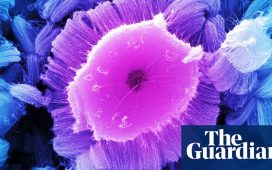My friend Andrew Packard, who has died aged 94, was a polymath-scientist and naturalist. His major scientific contribution concerned his work on octopuses, in which he was engaged for most of his life.
Andrew’s study into why cephalopods change colour in complex patterns demonstrated that it was not just about camouflage but ways of communicating and expressing feelings.
He was very critical of what he called the genetic determinists, who somehow “missed the magic” of nature. He understood the theory of evolution as being about organisms as a whole and not just genes, and he argued that contemporary evolutionary theory, which is focused on genes, fails to take into account feelings (affect) and the role of altruism that can only be observed at the level of interactions between organisms within species. This alternative understanding of evolution, he suggested, was much more in line with Darwin’s original ideas.
Andrew was born in Sedbergh, Cumbria, to Katharine (nee Johnson), a nurse, and Eric, a teacher who later became a vicar. He was educated at Gordonstoun, initially in Wales to where the school was evacuated during the second world war (and when his parents both were on the staff as chaplain and matron), and then in Scotland when the school returned north after the war ended. He completed national service in the navy and then studied zoology at Pembroke College, Oxford.
Andrew’s first job was a lectureship in zoology at the University of New Zealand in Auckland. In 1959 he was invited to join the staff in Naples at the Stazione Zoologica. He then joined the University of Edinburgh in 1971, first as lecturer and later as reader in physiology, where students are said to have been “entranced” by his lectures. He took early retirement from Edinburgh in 1988, partly as a protest against education cuts and the beginnings of bureaucratic staff assessment regulations, and accepted a chair in zoology at the University of Naples, describing himself as a “refugee from Thatcher”. Andrew also worked in the US; in Berkeley in the 1960s and later Stanford.
Among other accomplishments, Andrew had a glacier in Antarctica named after him following a biological expedition in 1958; he was a founder of the Scottish Greens; he worked with Jacques Cousteau on his documentaries, advising him on cephalopod behaviour; climbed mountains with Sir Edmund Hillary, and he wrote several children’s books, including Mr Spindles and the Spiders, published in 1961. He loved sports, especially cricket; and he was an accomplished draughtsman and watercolourist. He was also extraordinarily charming, and wonderful company.
His two marriages, to Brigitta (nee Bayer) in 1973 and to Ann (nee Davidson) in 1982, ended in divorce. The love of his life was the artist Susanna Linhart, whom he had known from the 1960s. They entered a civil partnership shortly before she died in 2021. He spent his last three decades with Susanna in La Garde-Freinet, in the Côte d’Azur area.
Andrew is survived by his sons, Ivan, from his relationship with Susanna, and Sasha and Kolje, from his first marriage, and by grandchildren, Natasha, Lucy, Emilia, Luis, Fergus and Lornad.









